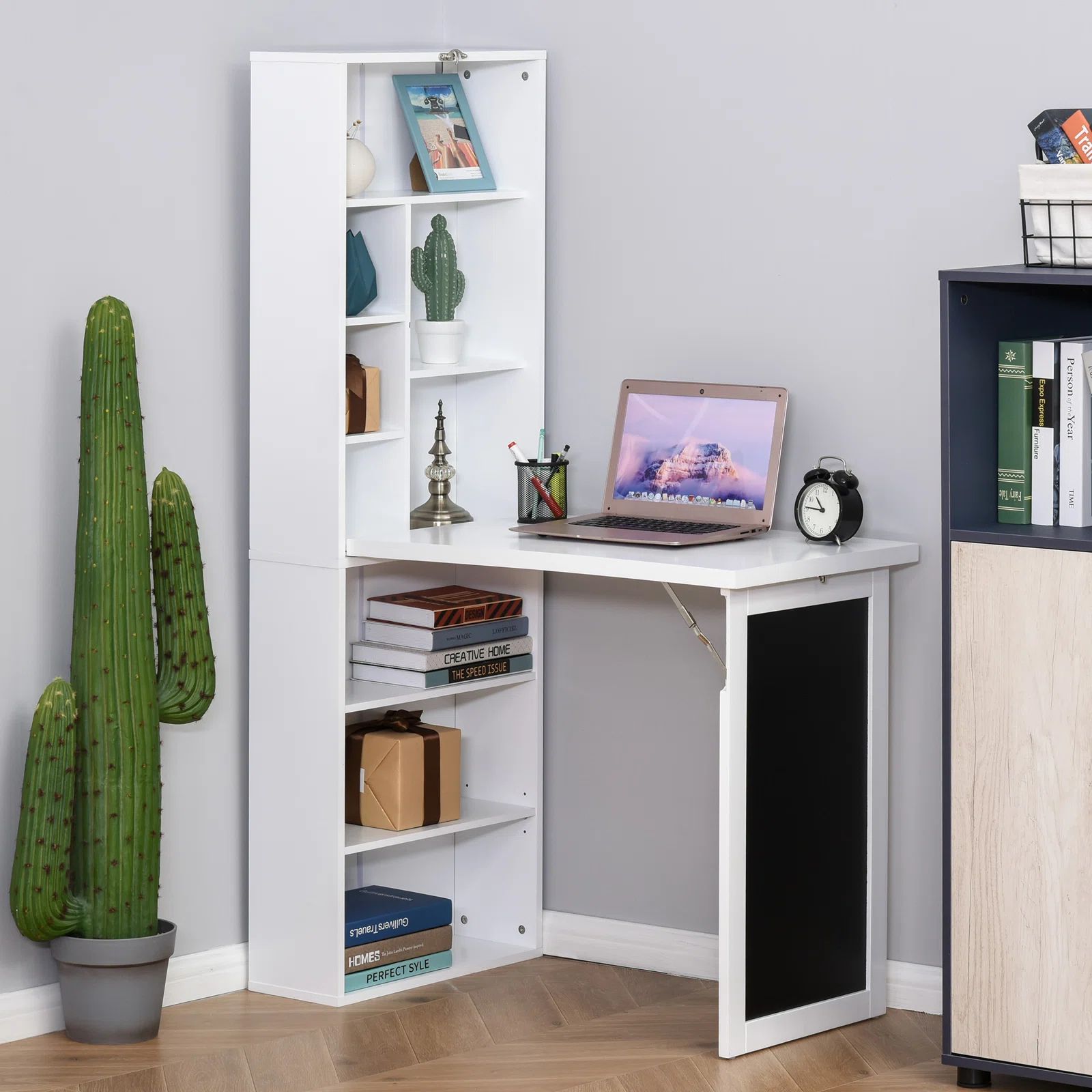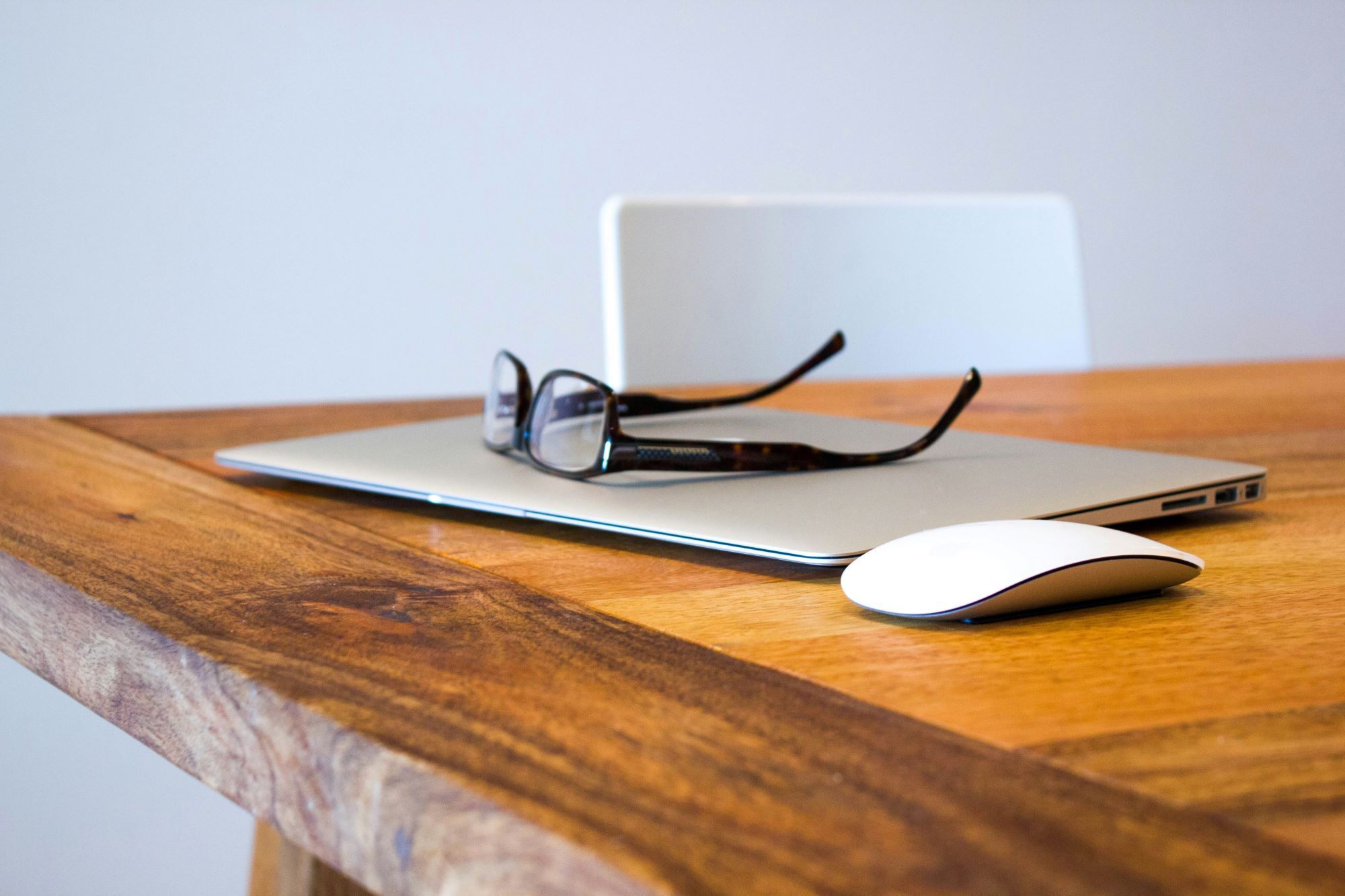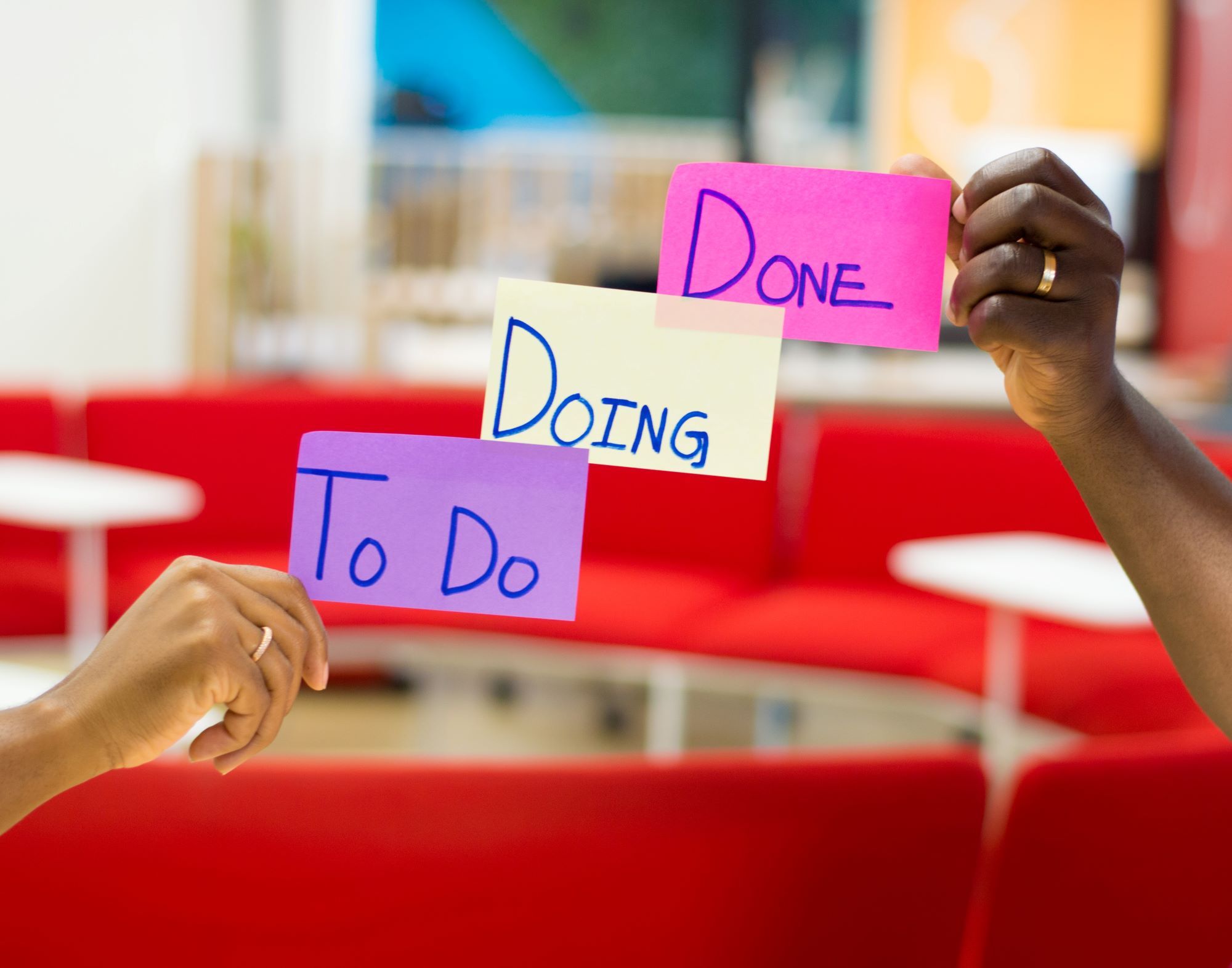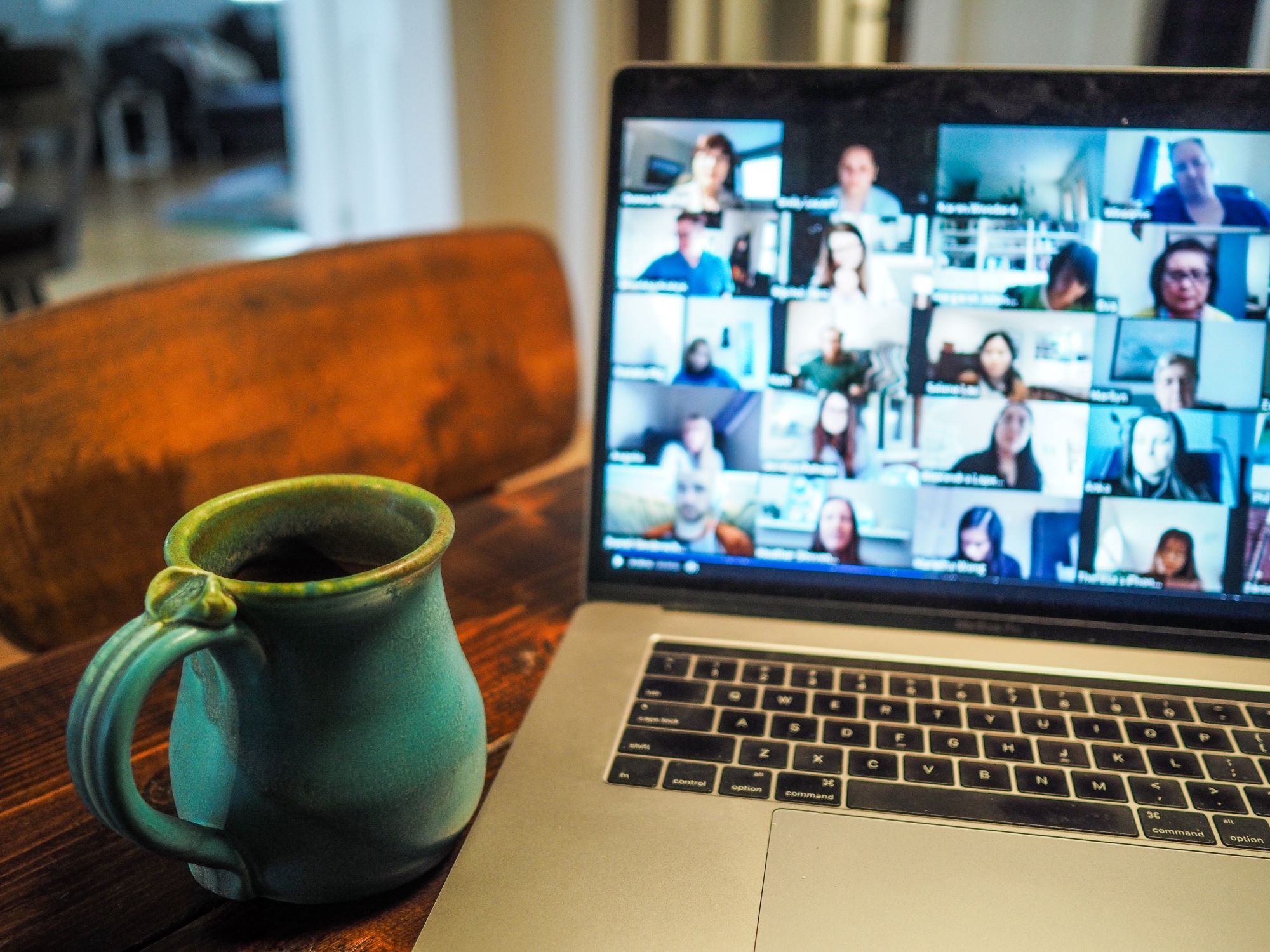How to win at working from home
More of us are now working from home than ever before. In this article, I'll share my top 5 tips to make the most of home working.

The COVID-19 pandemic changed everything. More of us are now working from home following a series of lockdowns, experienced in many countries. At first, home working can be daunting, but the opportunities for a true work-life balance can be achieved by making small changes to your day.
1. Separate work life from home life
Not everyone is in the fortunate position of having room that they can designate purely for home working. If you do, great. Make that space your own for work and ensure your setup doesn't blur those lines of what's home and what's work.
If you don't have a designated space, there's a plethora of low cost ways of creating a work space that you can shut away when 5pm comes around.

Foldaway desks are plentiful and affordable, allowing you to have a designated space to work which can be shut away once you finish for the day. For example, 'the dingles' fold-away desk available from Wayfair can be had for less than £100.
Don't be tempted to take your laptop and lay out on the sofa or sit up in bed working. Being disciplined in keeping a workspace, no matter how small, helps with stopping the blurring of the lines between work and home life.
Keep your work at work
Ensure your workspace has everything you need for your working day and keep it there. Pens, pads, post-it notes, keep these in your workzone and don't be tempted to let these to encroach into the rest of your home. This allows you to forget about work once your day has drawn to an end and relax.
Make the most of not working from an office
I'm very lucky. My employers don't mind where we work, providing we work. Many employers offer the same flexibility so use it to your advantage. Whether it's from a local coffee shop or even a hotel in a beautiful city, make the most of it. Take a work holiday and work from somewhere that excites or inspires you.
2. Protect your time, it's valuable
When working from home, especially when self-employed, setting strict work hours helps protect your time and keeps you focused on work. Set out your working day, complete with breaks and stick to it. If it helps, set an alarm, and when the end of your working day rolls around, pack up your work stuff and close the door on it.
Take a break, you earned it
When it's lunchtime, use that time to relax and where possible, get yourself out for a walk. Exercise is key to positive mental health and concentration, so don't be tempted to work through your lunch.

Drawing the lines between what is work's time and what is yours is key to maintaining positive mental health and ensuring work time doesn't encroach on your own. It also helps with that great sense of achievement of focusing on work, then closing the door on it.
3. Be organised and stay focused
Keeping your day structured, your workflow organised and removing distractions helps increase productivity, while staying focused. Remove temptations from your designated workspace such as games consoles, TVs or anything else that could distract you from your work.

If your workspace doubles as your play space, find a way to make that dual-purpose area work for both scenarios. Shut away any games controllers (or consoles) and keep the TV off. By all means, listen to music if this helps you focus on work.
Structured workflow
Structure your workflow. There's tools that can help you do this which are available free of charge, such as Trello. You could also use post-it notes and a blank space if you can.
To keep my workday structured, I use Kanban boards. They're a great way to keep focused at the task at hand and give a sense of achievement when you've achieved something.

Let's use a simple post-it note kanban board as an example. Take three post-it notes and write 'To-do', 'Doing' and 'Done' on them. Put them in a row on a wall. Now break your workload down into small and manageable tasks, write one task per post-it, sticking them beneath 'To do'. Once you've broken your project into manageable individual tasks, you can re-order them in a way that makes sense.
Only concentrate on one task at a time, and move the one in progress under the 'Doing' post-it. Once it's done, move it under the 'done' post-it. If you become blocked and can't continue on a task for whatever reason, move it back to 'To do', writing any relevant information to remind you why it became blocked. Repeat this until all the tasks are complete.
It's really important that you stay disciplined and take the time to organise your work to make the most from home working. Don't be tempted to context switch and use the calendar on your phone to remind you of any meetings/calls you have to make during your workday. This way, you will get a helpful reminder so you can't miss anything important.
4. Remember, you're at work
However tempting it is to stay in your pyjamas, don't do anything you wouldn't do if you were in the office. Staying organised and professional helps your work from home routine. Get up, washed and dressed, just like you would at work.
When it comes to eating and drinking, avoid drinking alcohol in your work time and ensure you have breakfast before settling down for your working day. Where it comes to lunch, take yourself away from your workspace and eat elsewhere. It's very tempting to sit at your workspace and eat, but this is a sure way to gain weight and blur those work/home lines.

If space is at a premium, and your workspace is in the same room as your living space, close your laptop and leave it until your break is over.
5. Stay social
Working from home can be incredible isolating at times, and is one of the key negatives of working from home versus the office. If you work in a company with other people, remember your colleagues are in the same boat. Don't be afraid to hop on a call to have a 5 min chat or collaborate over call where possible. You'll be grateful for the social interaction and helps build relationships with colleagues if you didn't previously work with them in an office setting.

Facebook and sites like meet-up have groups where you can socialise and meet with others in your community. Take the time to expore these to break the isolation.
I regularly walk with other home workers in my street, it's a great way to break the isolation and monotony of home working and is key for maintaining positive mental health. I also work from their houses too, it's a welcome break from the setting that I'm familiar with and having company while working keeps any loneliness at bay.
Conclusion
When lockdown was forced upon me, I struggled with home working. Having explored self-help guides, podcasts and trial-and-error, I made a contract with myself to make the most of it.
Fast forward 3 years, through organisation, staying social, being professional and dedicating a space to my work, I came to love it. I hope my top 5 tips help you adjusting to working from home, and if you have any other top tips, feel free to leave them in the comments section.

